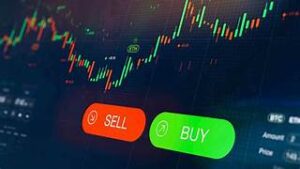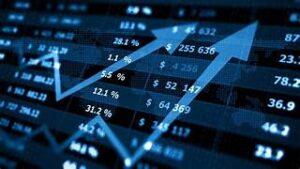Introduction:
Elections have always been significant events with far-reaching consequences, not only for the political landscape but also for the economic realm, particularly the stock market. Investors closely monitor election cycles as political shifts can introduce uncertainties that reverberate throughout financial markets. This essay aims to explore the intricate relationship between elections and stock markets, delving into historical patterns, key influencing factors, and the implications for investors.
Historical Perspective:
Historically, elections have often correlated with heightened market volatility. Studies indicate that uncertainty surrounding election outcomes tends to dampen investor confidence, leading to increased market fluctuations. However, the nature and magnitude of these effects can vary based on several factors, including the political context, economic conditions, and policy expectations.
For instance, presidential elections in the United States typically attract considerable attention from investors worldwide. The market tends to exhibit increased volatility in the months leading up to the election as investors assess the potential impact of different candidates’ policies on various sectors. Uncertainty regarding fiscal policies, trade agreements, and regulatory reforms can trigger market reactions, causing fluctuations in stock prices.
Factors Influencing Market Behavior:
1. Political Ideology and Policy Preferences:
- Investors often scrutinize candidates’ policy proposals and ideological stances to anticipate how they might shape economic policies if elected.
- Different ideologies can lead to divergent approaches to taxation, regulation, and government spending, influencing market expectations and investor sentiment.
2. Economic Indicators:
-Economic fundamentals, such as GDP growth, unemployment rates, and inflation, play a crucial role in shaping market sentiment during election cycles .
-Incumbent administrations often tout their economic achievements to bolster their reelection prospects, while challengers may emphasize areas of economic weakness to garner support.
3. Market Sentiment and Investor Behavior:
– Investor sentiment can fluctuate significantly during election cycles, influenced by opinion polls, media coverage, and political rhetoric.
– Market participants may adjust their investment strategies in response to perceived election-related risks and opportunities, contributing to market volatility.
4. Policy Uncertainty:
-Uncertainty regarding future policy directions under different political regimes can lead to risk aversion among investors, impacting stock prices and market dynamics.
-Clarity on policy agendas and the perceived stability of the political environment can alleviate uncertainty and restore investor confidence.
Implications for Investors:
1. Volatility and Opportunities:
– Election periods often coincide with increased market volatility, presenting both challenges and opportunities for investors.
– Volatility can create opportunities for short-term traders to capitalize on price fluctuations, but it may also increase risk for long-term investors.
2. Sectoral Impacts:
– Different sectors of the economy may be affected differently by election outcomes, depending on policy priorities and regulatory changes.
– Investors should assess sector-specific risks and opportunities based on the potential implications of election results for industries such as healthcare, energy, technology, and finance.
3. Long-Term Perspective:
– While elections can trigger short-term market fluctuations, long-term investors should maintain a disciplined investment approach focused on fundamentals.
– Overreacting to election-related news or market volatility can lead to suboptimal investment decisions and undermine portfolio performance over time.
Conclusion:
Elections exert a significant influence on stock markets, shaping investor sentiment, market dynamics, and investment opportunities. While election-related uncertainty can lead to short-term market volatility, investors should remain focused on long-term fundamentals and avoid making impulsive decisions based solely on political developments. By understanding the complex interplay between elections, policy outcomes, and market behavior, investors can navigate election cycles with greater confidence and resilience.